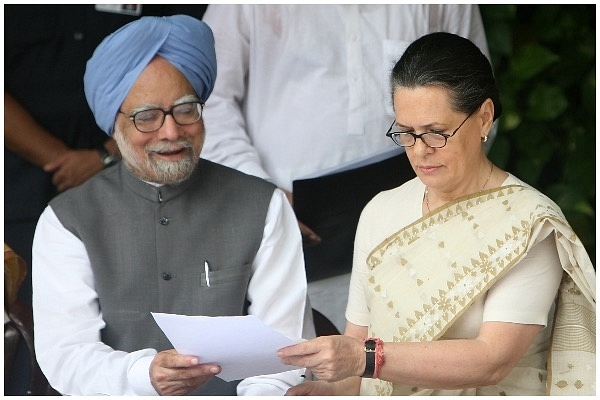
FM Nirmala Sitharaman Holds Manmohan Singh, Raghuram Rajan Responsible For Current Public Sector Banking Mess
Finance Minister Nirmala Sitharaman has accused former Prime Minister Manmohan Singh of leaving behind "a nasty stink of corruption" in the public banking sector, which suffered its "worst phase" under him and former Reserve Bank Governor Raghuram Rajan.
During Rajan's tenure "loans were given just based on phone calls from crony leaders and public sector banks in India till today are depending on government equity infusion to get out of that mire," she said on Tuesday (15 October) during a lecture at Columbia University.
Sitharaman said: "Indian public sector banks did not have a worst phase than when (there was) the combination of Dr Manmohan Singh and Dr Raghuram Rajan, as the Prime Minister and the Governor of the Reserve Bank."
She was responding to an audience members question about Rajan's reported criticism that Prime Minister Narendra Modi's government is "extremely centralised" and does not have a "consistent and articulated vision" for economic growth.
Lashing out at Rajan, Sitharaman said, "Rather too democratic leadership, which probably will have the approval quite a lot of liberals, I am afraid left behind such a nasty stink of corruption which we are cleaning up even today."
"So, if there is a feeling that there has been a centralised leadership now, I like to say that a very democratised leadership led to a whole lot of corruption," she said.
She added, "You need to have a country as diverse as India with an effective leadership".
Her lecture was hosted by the Columbia University's Deepak and Neera Raj Center on Indian Economic Policies.
With eminent Columbia University economists, Jagdish Bhagwati and former NITI Aayog Vice Chairman Aravind Panagaria, in the audience, Sitharaman asked, "Can all of us put together also think of asking what ails our banks today? Where has it been inherited from?"
She said she wanted "answers for the time when Dr Raghuram Rajan was here in the Governor's post".
She said, "The Indian banks, for which today to give a lifeline is the primary duty of the finance minister of India. And the lifeline kind of an emergency is not come overnight.”
(This story has been published from a wire agency feed without modifications to the text. Only the headline has been changed.)